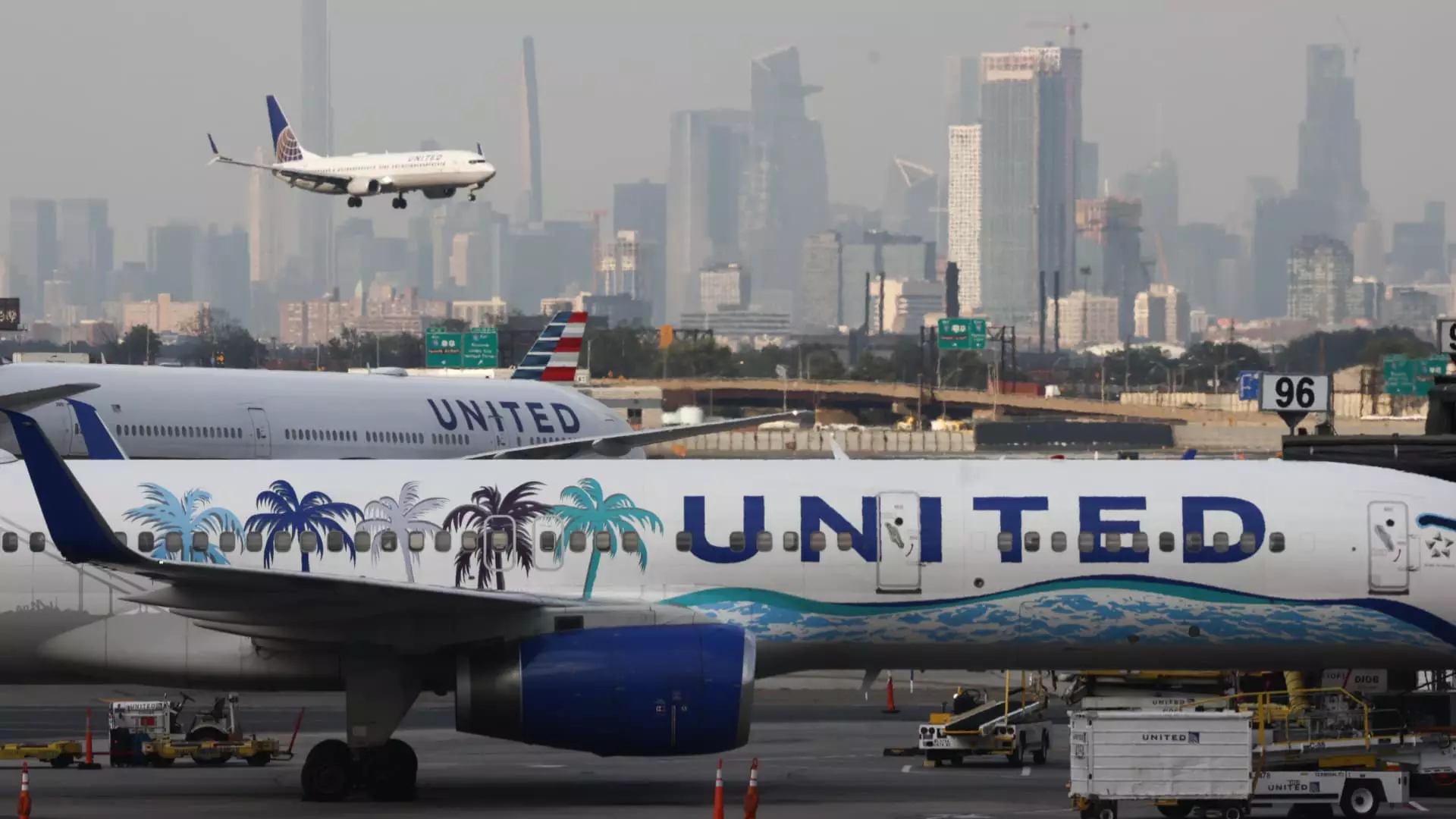As the U.S. grapples with shifting trade policies, the recent imposition of tariffs on Mexico and Canada, alongside increases on Chinese imports by the Trump administration, has sent shockwaves through the airline industry. These developments pose significant threats to consumer goods pricing, and as airline executives like those at Best Buy and Target have noted, their spillover effects onto everyday prices could deter holiday or seasonal travelers from purchasing tickets. Coupled with an already faltering consumer confidence and spending, this unfortunate circumstance is unlikely to improve any time soon.
U.S. airline stocks have experienced dramatic declines, with losses reaching approximately 6% for major players like United Airlines and Delta Air Lines, and a staggering plunge of over 8% seen among budget carriers like JetBlue Airways and Frontier Airlines. This abrupt downturn marks a stark contrast to previous periods of buoyancy and reflects the fragility of a market heavily reliant on consumer spending. This serves as a reminder that in unstable economic times, even well-established sectors can find themselves in dire straits.
The situation worsened as January brought the unwelcome news that U.S. consumer spending had dipped for the first time in nearly two years. Such statistics are often precursors to larger economic concerns. The Commerce Department reported a decline in retail sales that exceeded expectations, further deepening apprehensions in the airline sector. Should this trend continue, airlines might face a double-bind—higher operating costs due to tariffs amid a drop in demand from price-sensitive travelers looking to save wherever possible.
Despite these challenges, Deutsche Bank remains cautiously optimistic about the industry’s supply side, even while they acknowledge a concerning “soft patch” in economic performance. The bank’s analysts are watching for signs of sustained weakness, especially among domestic travelers as we approach the all-important spring travel season. However, they note that corporate and long-haul travel remains healthy, suggesting that not all areas of the airline market are in crisis.
Yet, one must question—how long can companies like United Airlines ride this wave of corporate demand? Are they entirely immune to the repercussions of a lower spending environment? While the CFO of United Airlines insists that international leisure traffic stays robust, one has to wonder if that will suffice in offsetting weakening domestic trends.
As much as the airline executives assure investors and analysts that corporate travel remains strong, the looming worry of consumer spending habits could lead to larger implications. Price-sensitive consumers may opt to forgo air travel in favor of more affordable alternatives, such as road trips or vacation spots with cheaper travel options. This shift could create a ripple effect across the travel industry, leaving airlines scrambling to adapt their strategies in a market rapidly transforming under the weight of economic uncertainty. In light of these dynamics, one fact is inescapable: the resilience of airline stocks is about to be tested like never before.


Leave a Reply